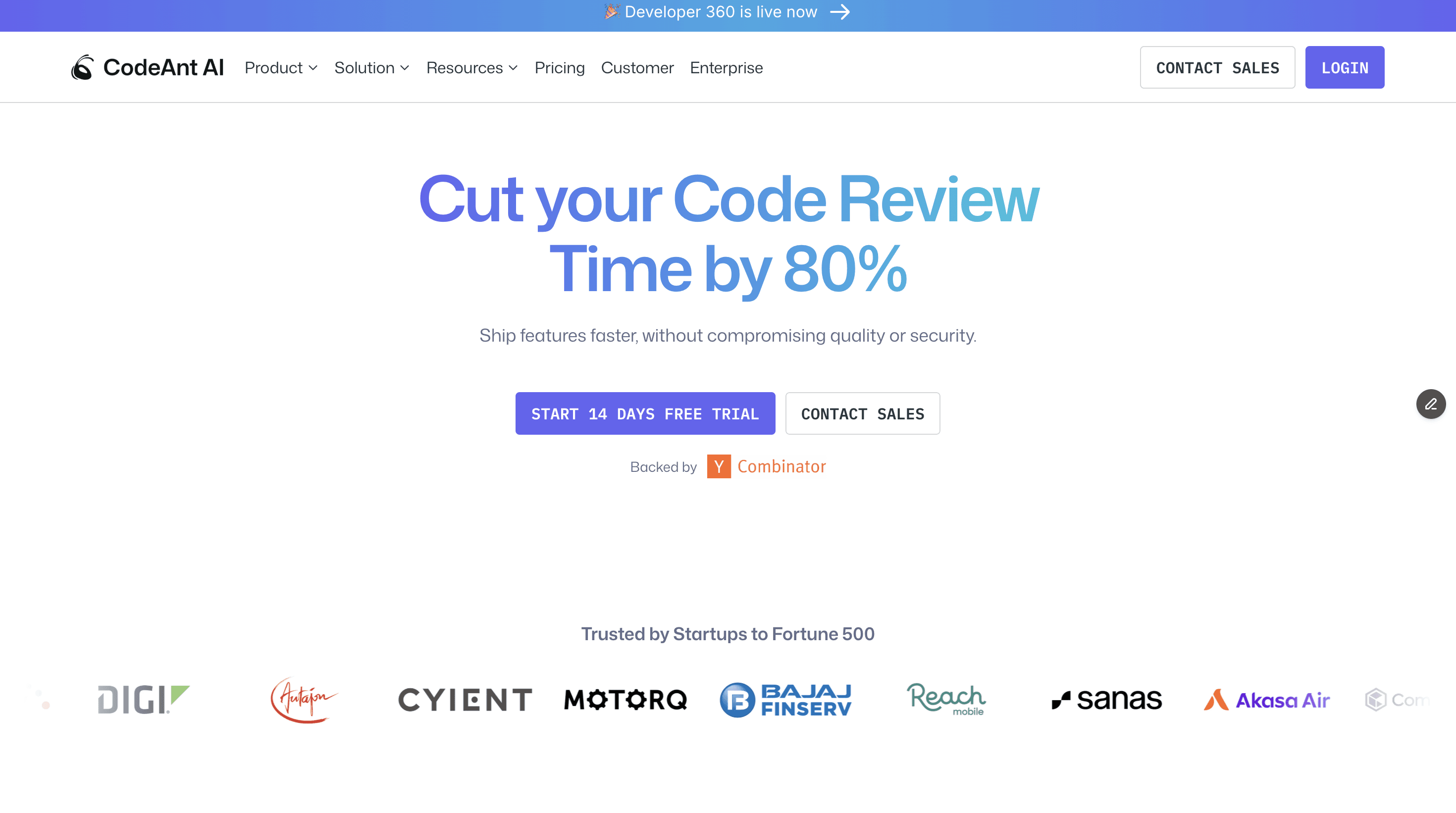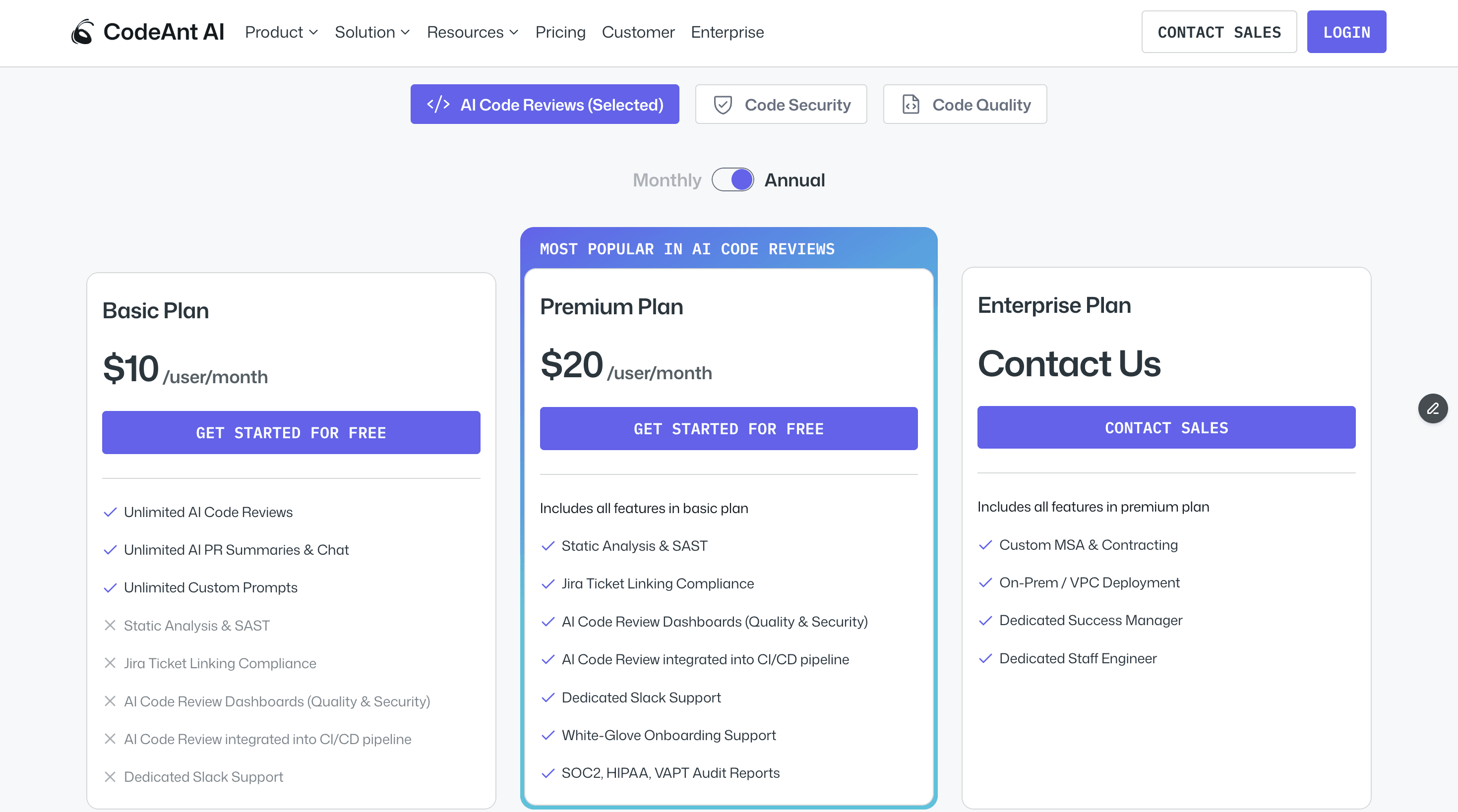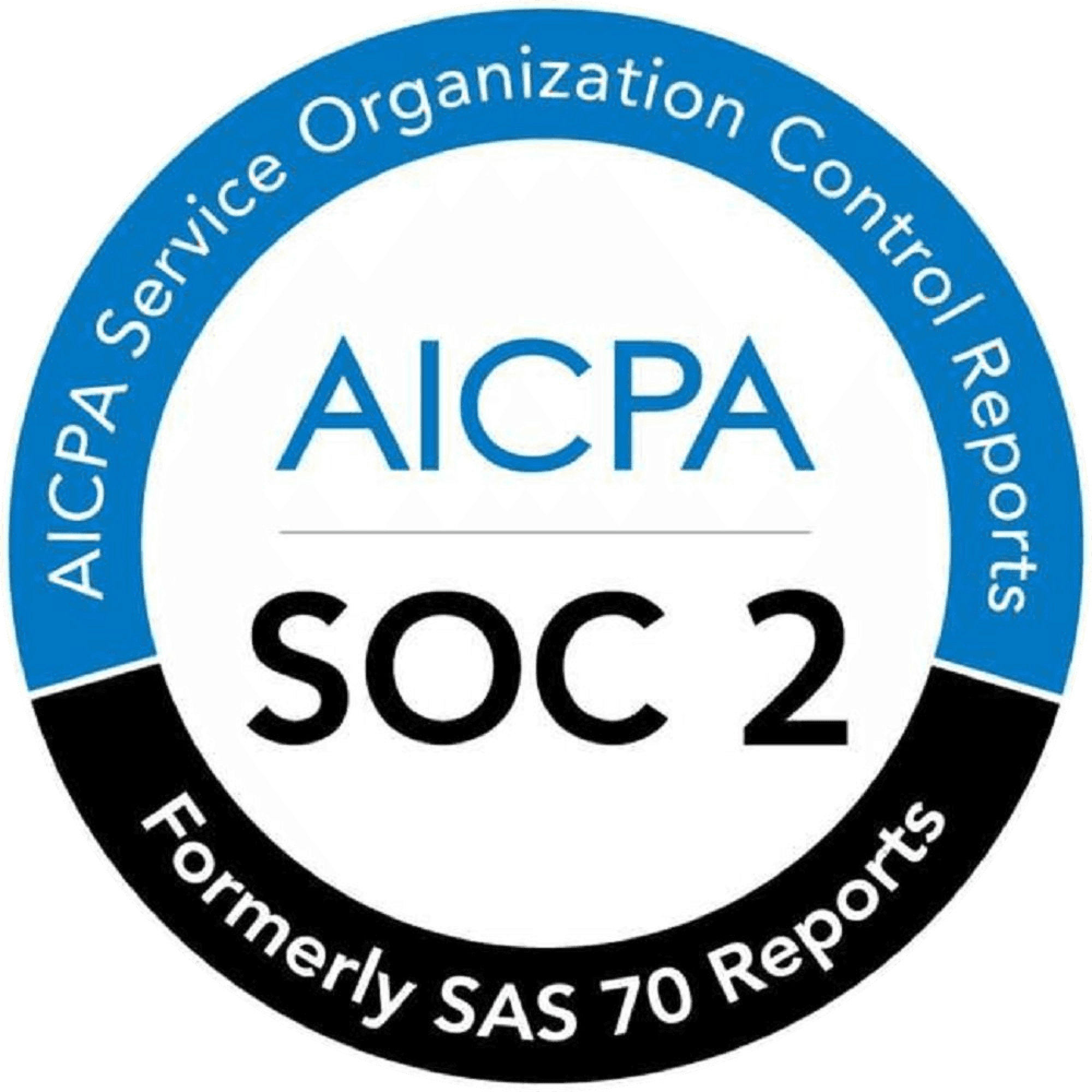Code Quality
Jan 27, 2026
12 Best SonarQube Alternatives for Dev Teams in 2026

Sonali Sood
Founding GTM, CodeAnt AI
SonarQube takes the big bucks. As a dev, you know the importance of code quality analysis and if you are using SonarQube, you might be feeling the pinch in your wallets.
This blog will give you the 12 best free and open-source alternatives to SonarQube. The list contains tools for everyone, from enterprises to hobby projects.
Let's take a look.
But, first
Check out how CodeAnt AI outperforms SonarQube, that traps you in static rules.
The SonarQube Phenomenon
SonarQube is a powerful tool for continuous inspection of code quality. It quickly gained popularity; it can detect bugs, code smells, and security vulnerabilities across 20+ programming languages.
Many devs fell in love with its user-friendly interface and comprehensive reports.
Why Look for SonarQube Alternatives?
SonarQube is great but it is not perfect for everyone. Why?
Cost: The enterprise features can be pricey for smaller teams or startups.
Complexity: Some find SonarQube's setup and configuration a bit overwhelming.
Resource Intensity: It can be a resource hog for larger codebases.
Limited Customization: Some teams need more flexibility than SonarQube offers.
Initially, let's take a look at some of the Free SonarQube alternatives and then we will move on to the Open Source ones.
Now, let's get into the top "Free SonarQube Alternatives" in 2025.
P.S.- These are tested and verified tools as per our research.
1. CodeAnt AI

Most open-source SonarQube alternatives either give you basic static analysis or drown you in config. CodeAnt.ai is what you plug in after you've hit the ceiling with traditional tools.
It doesn't just lint your codebase, it plugs into your pull requests, runs line-by-line AI reviews, flags real-world security risks, and gives actionable feedback right inside GitHub, GitLab, Bitbucket, or Azure.
And unlike SonarQube, you don't need to pay $21k+ just to get reports or policy enforcement.
What makes CodeAnt different:
PR-native reviews - Context-aware AI comments inside pull requests, not just a scan report
Security built-in - SAST, secret scanning, IaC misconfigs, all included from Day 1
Team-wide dashboards - Track code quality, DORA metrics, and org-wide trends
Custom rules - Define and enforce company-specific code policies (without YAML headaches)
Flexible deployment - Use it on cloud or deploy on-prem for tighter compliance
So if you're looking for something SonarQube-like, but faster, simpler, and actually useful in real workflows, CodeAnt is the modern upgrade.
Pricing :

14-day free trial, No credit card required. After that AI Code Reviews are: $10/user/month [Basic Plan], Premium plan starting from $20/user/month.
👉 Check this related read: https://www.codeant.ai/blogs/best-sonarqube-alternatives
2. Coverity Scan

Coverity Scan is a heavyweight in the world of static analysis if you’re managing an open-source project, especially in languages like C, C++, or Java.
Features:
Focus on Critical Issues: It catches things you don't want to miss—null pointer dereferences, race conditions, and memory leaks.
Detailed Reporting: Coverity doesn't leave you hanging. Every issue comes with context and suggestions, making it easier to fix.
Where It Struggles:
If you're new to static analysis, the results can be overwhelming.
Scanning large projects can be slow, so it's better for periodic deep dives rather than constant use.
Use It If: Your project has critical quality requirements (e.g., embedded systems or enterprise software), and you're okay with waiting for thorough results.
3. Codacy

Codacy simplifies the code review process by automating it. It never sleeps, always keep checking the style issues and common bugs.
Key Features
Feedback: Codacy scans every pull request and flags problems immediately.
Language: From Java to Python, Ruby to JavaScript, Codacy handles a broad range of programming languages.
Customizable Rules: You can tweak the rules to fit your project's style. Hate semicolons? Codacy doesn't care—as long as you're consistent.
Where It Struggles:
Surface-Level Analysis: While it's great for linting and style checks, Codacy isn't as thorough when it comes to finding deep logical issues.
Integration Friction: Some teams report problems when integrating it with certain CI/CD setups. This actually depends on the tools you are using.
Use It If: You want an easy-to-integrate tool to maintain coding standards, especially in a team. Also you can pair it with a deeper analysis tool for a complete workflow.
4. DeepSource

DeepSource goes beyond pointing out errors—it tries to fix them for you. If you’re a fan of automation (and who isn’t?). Deepsource can save you hours on repetitive tasks.
Features:
Autofix: Imagine it cleaning up unused imports and simplifying vulnerabilities.
Broad Issue Coverage: It catches performance issues, security vulnerabilities, and even anti-patterns.
Modern Language Support: DeepSource is great if you're working with Python, Go, Kotlin, Java, etc.
Where It Struggles:
Free Plan Limitations: While open-source projects can use it for free, premium features like advanced reporting require a subscription.
If your codebase has years of tech debt, DeepSource might overwhelm you with a long list of issues.
Use It If: You're looking for something to automate the cleanup of code smells and reduce manual effort in code reviews.
5. ESLint

Who hasn’t heard of ESLint? It is one of the must-have VS Code extensions. ESLint is one of those tools that just works—simple, effective, and highly customizable.
Features:
Editor Integration: ESLint runs in real-time within IDEs like VS Code.
Customization: Whether you follow Airbnb's style guide, or your own, ESLint can be tailored accordingly.
Plugins: There's a plugin for pretty much everything, from React to Vue.js.
Where It Struggles:
No Deep Analysis: ESLint is great for style and syntax but won't help you catch logical or runtime issues.
Setup Complexity: Setting it up with lots of dependencies can be tedious.
Use It If: You want to add consistent style and catch everyday mistakes while writing JavaScript or TypeScript. Pair it with Prettier for automatic formatting.
6. SonarLint

SonarLint is from SonarQube; yes, it is free and open source; it is your real-time code quality assistant inside your IDE.
Features:
Real-Time Feedback: It highlights problems in your code while you write.
Insights: SonarLint doesn't just flag issues; it tells you why they're wrong and how to fix them.
Integration: It works effortlessly with IDEs like IntelliJ, Eclipse, and VS Code.
Where It Struggles:
Limited Scope: It only checks the file you're actively working on. Bigger, cross-file issues need a tool like SonarQube (which is paid).
Language Coverage: While it supports popular languages, some niche ones are left out.
Use It If: You want quick feedback during development and are okay using another tool for larger-scale analysis.
Now let's take a look at some more open-source alternatives to SonarQube.
Open Source Alternatives to SonarQube
1. Squale

Squale is an open-source platform built for code quality management. It doesn’t just run analyses—it tracks trends over time that is why it is good for long-term projects.
Features:
Multi-Tool Integration: Squale acts as a dashboard, aggregating reports from tools like SonarQube, Checkstyle, and more.
Trend Monitoring: It lets you see how your code quality evolves.
Open and Customizable: Since it's open-source, you can tweak it to suit your needs if you're comfortable with some backend work.
Where It Struggles:
Complex Setup: Setting up Squale is not plug-and-play. It requires some effort, especially if you're new to managing multiple analysis tools.
As it is open source, it has limited support.
Use It If: You're managing a large, long-term project and want a bird's-eye view of your code quality across various tools.
2. PHPMD (PHP Mess Detector)

PHPMD is a direct tool for PHP developers looking to clean up messy code. It scans your PHP files and highlights potential problems like overly complex functions, unused variables, or poor naming conventions.
Key Features
Built specifically for PHP
You can create rules tailored to your project. So it flags only relevant things.
It's simple to install.
Where It Struggles:
This tool is useless if your stack includes other languages too. It is PHP-only.
PHPMD won't catch deeper issues like security vulnerabilities or performance issues.
Use It If: You're working on a PHP project and want a lightweight tool to enforce clean coding practices.
3. ShellCheck

If you write shell scripts, ShellCheck is a must-have. It’s an open-source tool designed to identify issues in shell scripts.
Features:
Practical Error Detection: It catches real-world issues like unsafe variable handling and compatibility problems between different shells (e.g., Bash vs. Zsh).
Clear Explanations: Every warning comes with a detailed explanation and, often, an example of how to fix it.
Command-Line and Online Use: You can install it locally or use the web version for quick checks.
Where It Struggles:
Limited Scope: ShellCheck is only for shell scripts—it won't help with anything else in your codebase.
False Positives: Occasionally, it flags edge cases that might not apply to your script, especially if you're doing something unconventional.
Use It If: You rely on shell scripting for automation or deployments and want to avoid subtle bugs that could break your workflows.
4. Cppcheck

Cppcheck is a static analysis tool designed for C and C++ developers. Unlike some general-purpose tools, it is just focused on these two languages.
Features:
Deep Analysis: Cppcheck digs hard into C-to-find problems like undefined behaviors and memory management errors.
Extensible: You can write custom checks to suit specific project requirements.
No False Positives Policy: The tool emphasizes accuracy so that means no wasting time on issues that are not real.
Where It Struggles:
Slow on Large Codebases: Scanning a massive project can take a while, so it's better suited for incremental checks.
The interface isn't the most modern. Can feel clunky for new devs.
Use It If: You're working on performance-critical C/C++ applications and need a reliable tool.
5. Checkstyle

Checkstyle is all about enforcing coding standards in Java projects. If you’re part of a team (or managing one), this tool can help maintain consistency across the codebase.
Features:
Coding Standards Enforcement: It ensures everyone sticks to agreed-upon guidelines.
Integration Friendly: Works well with popular IDEs, CI/CD pipelines, and build tools like Maven and Gradle.
Customizable Rules: You can define your own rules or use predefined ones like Google’s Java style guide.
Where It Struggles:
Not for Deeper Analysis: It focuses on style and structure, leaving deeper issues like security bugs untouched.
Requires Rule Configuration: Out-of-the-box rules may not fit your project, so you need to spend some time tweaking.
Use It If: You want to enforce style consistency and coding standards in Java projects.
6. Flawfinder

FlawFinder is a lightweight tool designed to find security vulnerabilities in C and C++ code. It scans for known risky functions and highlights potential exploits.
Features:
It's specifically designed to catch vulnerabilities like buffer overflows and format string issues.
Easy to set up and run quickly even on large codebases.
You get straightforward results without unnecessary stuff.
Where It Struggles:
Limited Scope: It focuses on known patterns and won't help with broader code quality or performance issues.
High false positives: Some warnings may not be relevant, requiring manual work.
Use It If: You're working with C/C++ and want a quick way to check for security issues in your code.
7. Semgrep

Semgrep is like grep but smarter. It’s a code search tool that works across languages to find and fix vulnerabilities, enforce style rules, and catch anti-patterns.
Features:
Cross-Language Support: Works with Python, JavaScript, Go, and more. Best for mixed-language projects.
Custom Rules: You can write rules in Semgrep's simple syntax to match your project's unique needs.
CI/CD Integration: Catch issues before they make it to production by adding Semgrep to your pipelines.
Where It Struggles:
Steep Learning Curve for Custom Rules: Writing advanced custom rules can take time and especially for complex patterns.
Paid Features: While the core is open-source, advanced enterprise features require a subscription.
Use It If: You need a flexible, customizable tool that works across multiple languages and fits into automated workflows.
What Next?
Managing multiple tools for code quality and security is not only time-consuming but exhausting. Each tool we have covered above has its merits and demerits, but wouldn't it be simpler to have everything in one place?
That’s where CodeAnt.ai comes in, a platform that combines code review, static analysis, and security scanning into one seamless experience. From catching bugs early to improving code quality and ensuring security, It’s designed to make your workflow efficient and effective.
With AI-powered insights, real-time fixes, and support for 30+ languages, it’s built to fit right into your developer tools—whether in your IDE or CI/CD pipeline.
If you’re looking for a practical way to spend less time managing tools and more time focusing on your code, give CodeAnt.ai a try. It’s a straightforward solution to a messy problem.
Ready to explore what it can do? Book a demo and see how it fits into your workflow.
Happy Finding Errors. Thanks for Reading.














